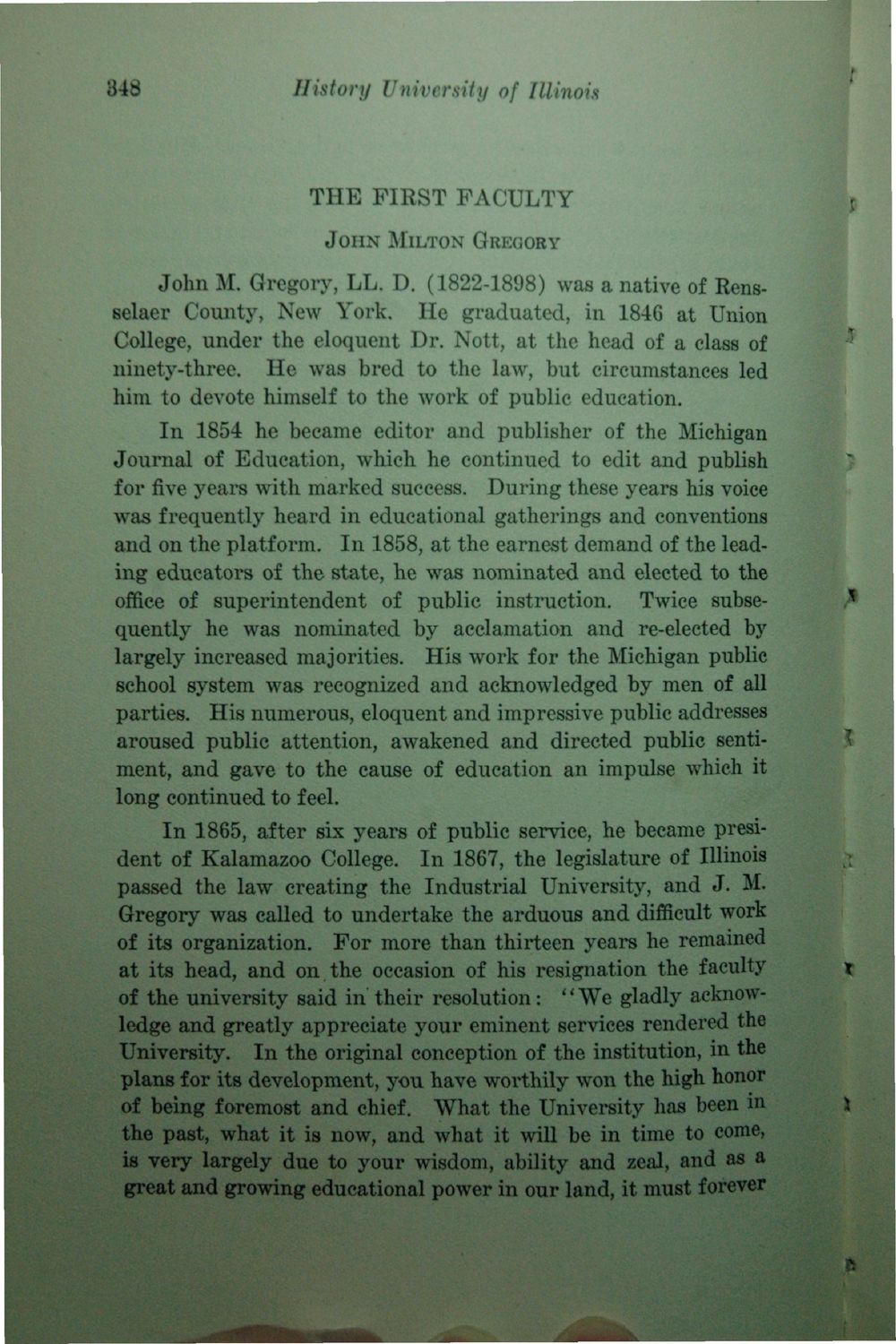| |
| |
Caption: Book - History of the University (Powell)
This is a reduced-resolution page image for fast online browsing.

EXTRACTED TEXT FROM PAGE:
848 History University of Illinois THE FIRST FACULTY JOHN MILTON GREGORY |l John M. Gregory, LL. D. (1822-1898) was a native of Rensselaer County, New York, He graduated, in 1846 at Union College, under the eloquent Dr. Nott, at the head of a class of ninety-three. He was bred to the law, but circumstances led him to devote himself to the work of public education. In 1854 he became editor and publisher of the Michigan Journal of Education, which he continued to edit and publish for five years with marked success. During these years his voice was frequently heard in educational gatherings and conventions and on the platform. In 1858, at the earnest demand of the leading educators of the state, he was nominated and elected to the office of superintendent of public instruction. Twice subsequently he was nominated by acclamation and re-elected by largely increased majorities. His work for the Michigan public school system was recognized and acknowledged by men of all parties. His numerous, eloquent and impressive public addresses aroused public attention, awakened and directed public sentiment, and gave to the cause of education an impulse which it long continued to feel. In 1865, after six years of public service, he became president of Kalamazoo College. In 1867, the legislature of Illinois passed the law creating the Industrial University, and J- M. Gregory was called to undertake the arduous and difficult work of its organization. For more than thirteen years he remained at its head, and on,the occasion of his resignation the faculty of the university said in their resolution: "We gladly acknowledge and greatly appreciate your eminent services rendered the University. In the original conception of the institution, in the plans for its development, you have worthily won the high honor of being foremost and chief. What the University has been in the past, what it is now, and what it will be in time to come, is very largely due to your wisdom, ability and zeal, and as a great and growing educational power in our land, it must forever J t X &
| |